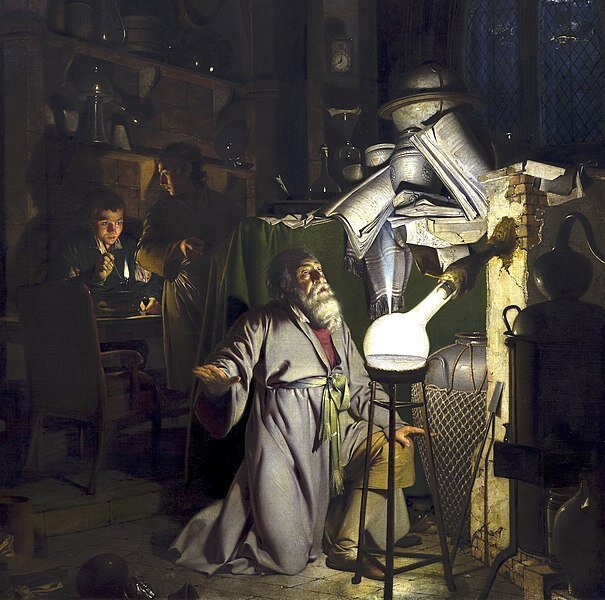The Genealogies of Modernity Journal
Bernard Lonergan on Modern Culture and the Crisis of Belief: Part I
Modern culture occasions a crisis of belief not just about this belief or that belief, or even the aggregate of beliefs and correlated values in Catholic life, but about believing itself.
Jonathan Heaps on Lonergan and the culture of modernity
Marriage Made the West WEIRD
Joseph Henrich’s account shows that much of what we take to be typically modern habits of mind—individualism, impersonal prosociality, an acute sense of guilt—were already deeply imbedded in the Western psyche by the High Middle Ages.
Brendan Case reviews The WEIRDest People in the World
In the Ruins of Literary Postmodernity
Friendship with God—it is a laughable postmodern literary idea. But for post-postmodernity, is there anything worth pursuing more?
Jeffrey Wald reviews books by Catholic writers Joshua Wren and Trevor Merrill
A Genealogist of Slavery Confronts the Archives
We can tell stories other than slavery’s violence, but does that extend dignity to enslaved, brutalized humans? Does a story ‘against the grain’ face down the thing the archive does (preserving violence and creating race)? Or does a story about the violence memorialize violence?
Maria Cecilia Ulrichson asks what Christian genealogy can learn in the archives
On the Myth of a Singular Science
Stephen Gaukroger exposes the insubstantial reasons for assuming that some meaningful theoretical construct or set of practices called "Science" underpins all the sciences..
Eileen Reeves reviews Civilization and the Culture of Science
On Background: From the Renaissance to Zoom
Like 15th Century portrait painters, we find ourselves amid an experimental period. It is unclear what the future will hold, whether it is standardized virtual bookshelves or targeted ads that suggest lipstick shades based on wall color.
Chloé Pelletier on the background to our Zoom backgrounds
Philosophy in Letters
Varnhagen’s letters are increasingly gaining recognition, not just as records of a brilliant mind and the struggles of a Jewish woman of the time, but as works of literature and philosophy.
Anna Ezekiel explores the possibility of an epistolary philosophy in Rahel Varnhagen
Moving Altars from the Middle Ages to WWII
From the crusades to WWII, Catholic materiality in combat did not just serve the needs of the faithful but also anchored broader conceptualizations of what constituted “just warfare.”
Sarah Luginbill examines portable altars and the relation of war and religion
Keeping the Rhythm
Lexi Eikelboom argues, in a new way, that theology always begins from these most ordinary places, driving us deeper into such moments instead of out and away from them.
Lyle Enright explores the impact of taking rhythm seriously
Man Is a Social Organism
The body politic metaphor became proof that the immigrant and the dependent were biologically incompatible with the rest of society. The community that grew out of this interpretation shaped itself in strange, unsettling, and inhumane ways.
G. Marie Aquilina traces the history of eugenics as a distortion of the body politic
The Turn to the Body
The turn toward the body had three important effects on modern political philosophy: it naturalized security, individualized liberty, and privatized property.
Emily Davis reviews Birth of the State by Charlotte Epstein
The Vienna Circle Contra Mundum
For them, science was without mysteries. Everything there is can be surveyed and explained in its totality and verified empirically. Everything that means anything can be expressed clearly.
Henriikka Hannula reviews Exact Thinking for Demented Times by Karl Sigmund
The Heaven of the Transhumanists
To adopt the transhumanist vision is to think of incarnate reality as something to be saved from. To adopt Gabriel Marcel’s vision is to recognize that our salvation, or at least hope for our salvation, is already present before us.
Geoffrey Karabin presents two visions for a post-modern heaven
Get Rhythm
This back-and-forth will grow and stretch and change and, somehow, we will recognize that we have been caught up together in another, greater boundedness all along.
Lyle Enright reviews Lexi Eikelboom’s Rhythm: A Theological Category
The Myth of Martin Luther
If Luther’s celebrants insist on granting him the honors of modernity, they need to consider his implication in the full story of modernity, not a sanitized version of it.
Christine Helmer details Luther’s place in the stories we tell about modernity
The Housing Crisis in the Humanities
When modernity lost its modularity, it became an asset to be fought over, a territory to be controlled. Modernity became the cool neighborhood that scholars jockeyed to buy into.
Daniel Zimmerman critiques the excess of periodization
Marcionism as a Genealogical Category
Genealogy speaks of repetition—surprising repetitions—across historical periods and especially across the so-called hiatus between the modern and premodern world.
Cyril O’Regan looks to an old heresy to understand new problems
A Rake's Progress Through Operatic History
Toeing the line between sincere homage and raucous parody, The Rake’s Progress is a complex opera, one that evinces sincere ambivalence toward its source material, but above all, delight.
Jacob Martin reviews a transhistorical operatic masterpiece























